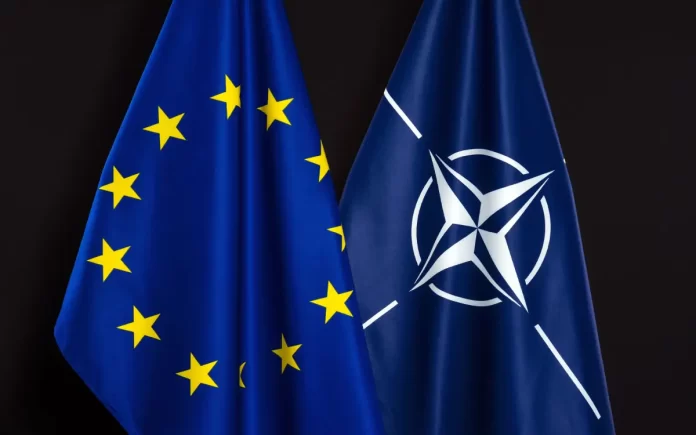Brussels: Amid concerns over the potential return of former US President Donald Trump and his stance on defense spending and security measures, European Union parliamentarians and security officials are quietly considering the prospect of establishing an alternative to NATO. The discussions come as Trump’s rhetoric and policies cast doubt on the traditional transatlantic security alliance, raising fears of diminished US commitments to European defense, particularly in the face of Russian aggression.
“It is clear to everyone: Be it Trump or Biden, the countries in the EU must come together and step up their security game. That is the homework,” remarked Hannah Neumann, a German member of the European Parliament, as reported by The Washington Post.
The unease among European officials was palpable at the Munich Security Conference (MSC), where Trump-aligned Republican senator JD Vance hinted at the possibility of the Trump administration engaging with Russia and potentially withdrawing support from Europe. Vance’s comments underscored a perceived over-reliance on American security assurances and highlighted Europe’s need to bolster its own defense capabilities.
“Europe has to take a more aggressive role in its own security,” asserted Vance, downplaying the notion of Putin posing an existential threat to Europe.
However, Trump’s recent remarks at an electoral rally, where he suggested allowing Russia free rein over NATO members deemed insufficient in defense spending, further fueled European apprehensions. In response, European officials have begun exploring the concept of a continent-wide alternative to NATO, designed to complement US security guarantees while providing a credible fallback option should those assurances falter.
“When the former and possibly future leader of the free world says that he would sit back and see how Russia would attack NATO allies, we have to rethink what US commitment towards Europe and Ukraine could look like. We do have to hope for the best but must prepare for the worst,” remarked a top EU security official, expressing concerns over potential US disengagement from European security affairs.
Yet, these discussions are mired in challenges. Disagreements persist among EU member states, with France and Germany at odds over economic burdens and Eastern European nations questioning Western Europe’s commitment to countering Russian threats. Additionally, uncertainties surround the establishment of a continental nuclear shield, which would still pale in comparison to Russia’s formidable arsenal in a nuclear conflict.
Despite these hurdles, the conversations signify Europe’s recognition of the need for greater strategic autonomy and resilience in the face of shifting geopolitical dynamics.



